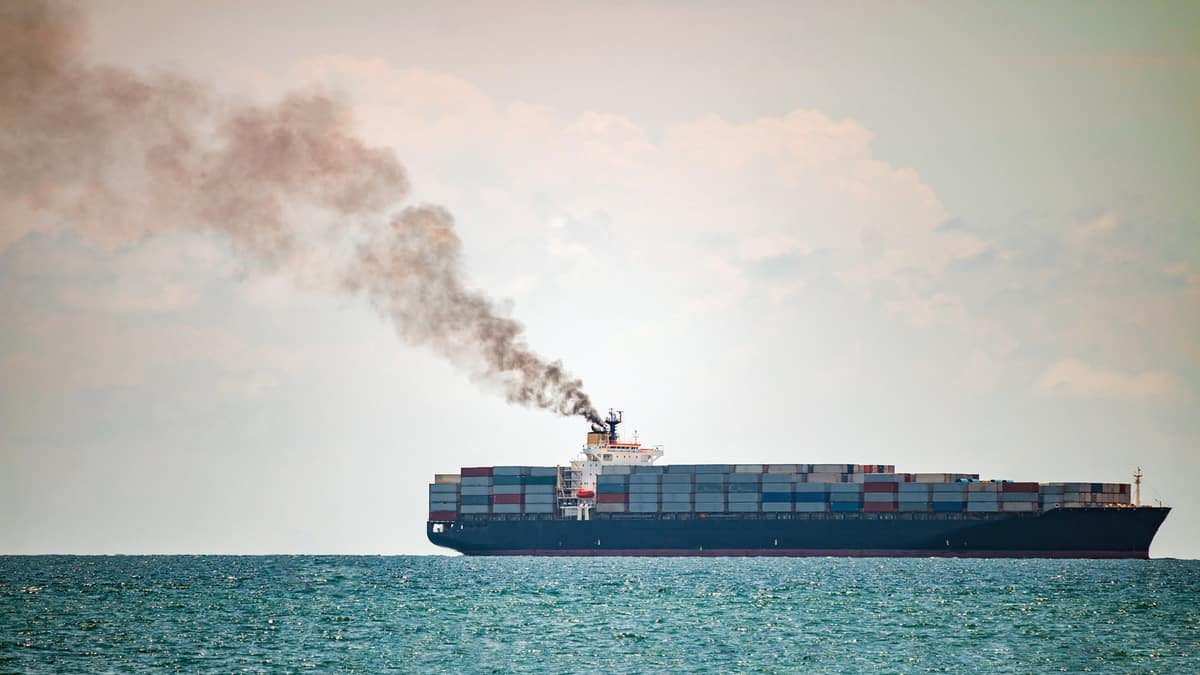An International Maritime Organization (IMO) member country delegate said a study presented this week revealed engine power limitation (EPL) of 10% to 30% would result in zero or negligible CO2 reduction.
The IMO met Nov. 11-15 at its headquarters in London, discussed carbon-reduction strategies and ultimately resolved to allow member countries to choose their own strategies to reduce carbon emissions by 2023.
According to the IMO, the maritime industry accounts for about 2.5% of global carbon dioxide emissions. Shipping also produces other harmful emissions such as black carbon, sulfur oxides, nitrogen oxides and nitrous oxides.
Carbon mitigation is a huge hurdle for the maritime industry. Each year, global climate talks take place to discuss ways to reduce emissions, specifically carbon emissions. The Paris Agreement did not account for the shipping industry in emissions targets and left it to make its own commitments.
The IMO released a brief statement saying that there were “proposals to limit ship speed” discussed at this week’s meeting. The member country delegate said the study presented at the meeting also showed power limitations up to 60% would cut CO2 by 6% to 17%. This could place a ship’s engine power below minimum safe propulsion power requirements according to ISWG-GHG 6/2/5.
“Power limitation as a concept has been holed below the waterline. Yesterday’s analysis showed it simply doesn’t work very well at cutting CO2. Mandatory operational standards are the only way forward now, on either real-world efficiency or real-world speed, take your pick,” the anonymous country delegate said.
Seas At Risk cites a study done earlier this year by the Clean Shipping Coalition about reductions in greenhouse gases, specifically carbon emissions. It suggests that there would be significant reductions in emissions, but missed the point that there would have to be significant growth in ship fleets to achieve the emissions reductions that the Clean Shipping Coalition found. Seas at Risk also discusses a 66% reduction in noise pollution and a 78% reduction in the probability that a ship will collide with a whale.
The Clean Shipping Coalition’s study suggests that a 10% reduction in speeds would require a 10% growth in the number of ships to achieve 13% CO2 emissions reductions between 2018 and 2030. In fact, the study finds that a 10% reduction in speed, while everything else remains the same, would result in an increase of emissions. Additionally, a 20% reduction in speed would need a 22% increase in the number of ships to obtain a 24% reduction in CO2 emissions; likewise, to obtain 33% reduction in emissions with a 30% reduction in speeds, the number of ships must increase by 37%.
Alternative fuels and technological advances were also options the IMO suggested to invest research dollars on. Flettner rotors, for example, propel ships when hit by the wind from the side and reportedly can reduce fuel consumption by up to 20%.
Leading up to this meeting, Drewry suggested that there would be slowdowns in speed if fuel costs spike in 2020, and France and Greece, along with other organizations, pushed for speed limits as a way to reduce carbon emissions. Other groups, like the Coalition for Responsible Transportation, oppose engine power limitations, suggesting that the decision should be left to operators.












Noble1
Quote:
“Other groups, like the Coalition for Responsible Transportation, oppose engine power limitations, suggesting that the decision should be left to operators. ”
But then as in the trucking industry , the argument will be in order for all maritime cargo shipping companies to remain competitive speed limitation will need to be regulated for all maritime cargo vessels . It’s all deja vu !
More ships ? Regulators don’t care . They’ll see it as a contribution to economic growth . Then when your industry becomes saturated and capacity outpaces demand , rates will decline , more regulations will be created in the name of “safety” and choke off competition and labour wages . This will lead to a lack of labor interest . Then perhaps you’ll end up with the idea of creating autonomous ships , LOL !